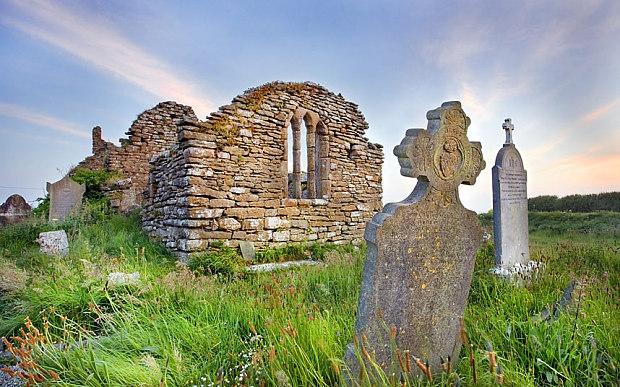|
Paedophiles still view churches as ‘soft touch’
By Hazel Southam And John Bingham
Churches are still viewed as a “soft touch” by paedophiles hunting for new victims despite tightening up child protection measures after a flood of abuse scandals, one of Britain’s leading experts on the issue has warned. Justin Humphreys, Head of Safeguarding at the Churches’ Child Protection Advisory Service (CCPAS), an independent body set up to combat clerical abuse, said convicted paedophiles often seek out places of worship on their release because of members’ belief in forgiveness. Although churches now routinely carry out criminal records checks for volunteer positions such as Sunday School teachers, he said they are “undoubtedly” still missing out on large numbers of people who pose a threat to children but have never previously been caught. Churches of all denominations are still guilty of “naivety” on the issue of sexual abuse despite the revelations, he added. A recent random survey by the CPAS found no examples of churches carrying out the level of full scrutiny in application processes that it recommends. The Roman Catholic Church around the world in particular has been rocked by waves of child abuse scandals, including in Britain, leading to the introduction of new rules to protect children. But less than a fortnight ago riot police had to be deployed in Chile at the inauguration of a new bishop accused of helping cover the crimes of an abuser priest. Two years ago the Church of England issued an apology to victims and it is now finalising an overhaul of canon law to modernise safeguarding procedures. But last week it emerged that almost 140 new allegations involving the Church of England had been made in the last six months alone. “It’s undoubtedly the case that paedophiles target churches because they are seen as a soft touch,” said Mr Humphreys. “A large number will leave prison every year and will seek out places of worship, some because they want the support of the church in a forgiving context ... but others because they can infiltrate that church. “It is a huge risk – we know that this happens. “We need to provide confidence for ourselves that people working with children are safe and suitable to be doing it. “The consequences of getting this wrong are huge.” He said that carrying out criminal records checks on new applicants for jobs was not enough and churches must go through rigorous procedures even for volunteer roles. “If churches are just doing a DBS Disclosure and Barring Service check, undoubtedly a paedophile could get through that,” he said. “Many sex offenders will have committed multiple offences, 20, 30 or 40 times before their first conviction. “The DBS check will only pick up what is known – there are likely to be many individuals who pose a risk to children who have a completely clean DBS check because they have not yet been caught.” He added: “It grieves me greatly when people say ‘we don’t have the time or resources to do this’. “I find myself getting quite passionate about that – I say: ‘Do you not realise that you are creating a huge unnecessary risk for children?’ “The ultimate aim is the safeguarding of children – you can’t buy that.” Danny Sullivan, chairman of the National Catholic Safeguarding Commission (NCSC) in England and Wales, said the Catholic Church had learnt lessons and had had to “wake up and grow up” to the threat, although it recognised it was still not “perfect”. Catholic churches now ban ex-prisoners with abuse convictions from attending services unless with prior agreement and under supervision. He said: “It is known that some the characteristics of paedophiles are their ability to charm and persuade, to lie – so their traits can make it hard to detect who they really are and what they are about which reflects the importance of having robust procedures in place. “But I think those attributes are general to paedophiles who are looking for an environment in which to abuse … I don’t think it is necessarily peculiar to the church.” He added: “The issue about forgiveness is a relevant point. “I think in the early days when people didn’t act properly you could have had bishops or leaders of religious orders who said ‘Oh, he said he was sorry’ – that was a profound misunderstanding. “Painfully, the Catholic Church has had to wake up to that and grow up about that – it is not about someone doing something wrong and simply saying that they are sorry.” He said it should not now be possible for senior clerics to brush over allegations or decide to forgive priests because the church has rules requiring mandatory reporting to police. A Church of England spokeswoman said: “We are committed to making our churches a safer place for all and are working to ensure that all we do is informed by the voices and experiences of survivors of abuse. “Through legislation currently going through General Synod and new guidelines we are striving to improve the consistency of our safeguarding work across parishes and dioceses. “This includes our response to concerns and allegations, training, and undertaking safer recruitment practices such as DBS checks or risk assessments with those who may present a risk to others. “We are also increasing our resource within the national safeguarding team to improve our capacity to strengthen our safeguarding arrangements with national policy and guidance, training and quality assurance.”
|
.
Any original material on these pages is copyright © BishopAccountability.org 2004. Reproduce freely with attribution.
